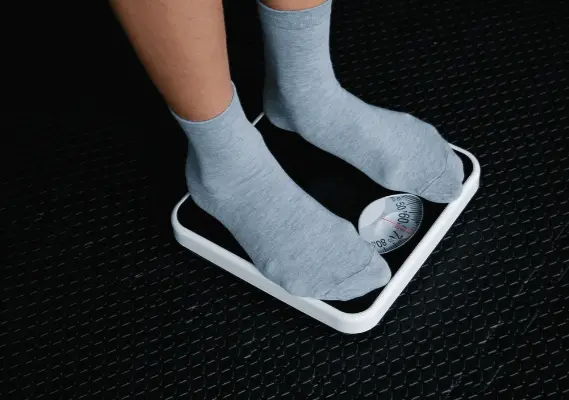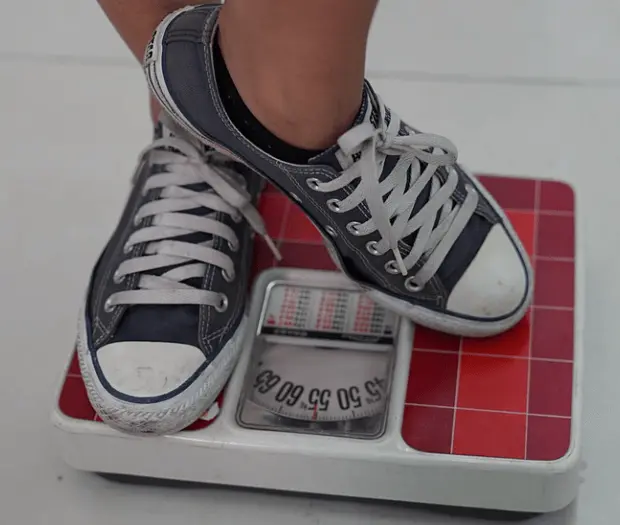Let’s rewind time and go back to when the year started when we were wishing each other a happy near year and were setting goals. According to statistics, about 20% of people who made resolutions during the new year set themselves a goal to lose weight in that year.
Fast forward to today you have made many changes but still can’t seem to have lost much weight at all considering your efforts. You alone are not facing this problem which might have given you a sigh of relief but how do you deal with something like this?

Reasons why you are not losing weight
You are not keeping a track of what you’re eating
It is very important to be aware of what you eat, and how much you consume it if you want to get yourself to lose some weight. Multiple studies have shown that keeping track of your food can greatly help with shedding some weight, people who use food tracking apps or food diaries have shown a consistent drop in weight as compared to those who did not.
You are not eating enough protein
Protein is not only an important nutrient to gain muscle but is also critically important to help you lose weight. It has been found that if 20% to 30% of your calorie intake comes from protein it can help boost your metabolism and make you feel full quicker causing you to eat fewer calories. It has also been found that proteins reduce any sweet and salty cravings.
Consuming a breakfast with a high amount of protein has proved to be effective to make you feel full during the day
You are eating too many calories
As simple as it sounds, you might have not reduced the number of calories you consume per day as opposed to how much you burn in that day. if a diet plan works for someone it does not mean it is going to work out for you. it has been found that people highly underestimate the number of calories that they consume.
It can be really helpful to count the number of calories by using apps and set yourself a limit by also tracking how many calories you burn a day from physical activity. Tracking can also help you reach a certain nutrient goal.
For example, you might want to reach the goal of protein being 30% of your food intake, or you may want to cut out fatty and carbohydrate-rich food.
You seem to avoid whole foods
Whole foods are foods that are not processed or refined and have unhealthy artificial ingredients added to them, A few examples of whole foods are fruits, vegetables, legumes, eggs, and meat.

The food quality you consume is equally as important as the food quantity when it comes to losing weight. Eating whole foods help with your general health and is. known to regulate your appetite as they give you a feeling of fullness much quicker.
Before you eat packaged food it is important o read the ingredients on the package.
You are not getting enough sleep
Getting enough sleep could be one of the most important factors when it comes to losing weight. reduced quality of sleep and sleeplessness are leading factors for weight gain as they decrease your body metabolism, and may cause you to binge eat during the night as there is an increased window of you being awake
It might cause you to skip breakfast which is a really important meal when it comes to losing weight, it disturbs your hormones that play a crucial role in your appetite ( feeling of fullness ) and the hunger hormone, Sleeplessness makes you tired the next day and prevents you from performing any physical activity.
You can check out our other article that gets into detail on how sleep can affect your weight loss journey and there are some great tips you can take away from it as well.
You are binge eating
Binge eating usually means that you are eating a large number of calories quickly in a very less time, usually more than what the body needs, this type of behaviour is usually seen when the person is bored or stressed out.
The problem does not end here, the foods that people usually binge eat are extremely unhealthy and calorie-rich. You can try to substitute these foods with healthy options like nuts, and dark chocolate.
You drink carbonated and sugary drinks
You might have cut out on all those fatty junk foods that have always kept you unhealthy but you are still consuming a lot of sugary carbonated drinks. These drinks are one of the key reasons people are unable to lose weight.
These drinks are high in calorie content and are unable to make you feel full as they are liquids thus are not able to decrease your appetite while still adding to your calorie count. So it is really important to avoid unhealthy soft drinks and go for fruit juices instead.
You avoid cardio
Cardiovascular exercises also known as aerobic exercises are exercises that help increase your heart rate. These exercises are the most effective ways to help lose those extra calories stored in your belly. Cardio exercises also have multiple other benefits like helping you fight against respiratory diseases better and preventing heart diseases.

You eat too often
It is a myth that has become very popular now that eating small meals several times a day can help you lose weight as it boosts your metabolism. It might also cause you to consume even more calories than before as it becomes harder to count every meal.
Effective weight loss can be seen with intermittent fasting.
Drinking less water
Studies have shown that people who drank half a litre of water before a meal lost 40% more weight as compared to those who did not.
Drinking water can also boost the number of calories your burn. Drinking about 1 to 2 litres of water a day can greatly help with weight loss.
You are drinking too much alcohol
Alcohol usually adds to the calorie intake, if you consume more than 2 drinks a day you are more likely to gain weight.

You sit around all day long
You are a student and sit at your study desk or work a desk job or are just obsessed with the television, these things make it hard on you to drop some weight. When you sit around too much your body slows down and decreases your metabolism. It is important to exercise for at least 1 hour each day or take a break away from your desk and walk for 10 minutes.
You reward your weight loss with food
You have gone on to lose some weight, and to celebrate you treat yourself by indulging in junk food or sweets and all that hard work you have put in to lose weight has now gone down the drain.
Some medical conditions:
Your thyroid is inactive
You might have put in your most to lose weight but just can’t see any progress, a condition of your thyroid being slow could be the reason. If your thyroid is unable to make enough hormones your metabolism slows down are you are unable to shed weight.
You need to contact your doctor who will give you the appropriate medication or you can check out our other article on hypothyroidism where you can naturally deal with it.
Menopause
Most women gain when during their menopausal years due to changes in hormones and decrease muscle mass
Your medication
As we all know the medication you receive usually alters the hormonal changes in your body, for example, steroids can increase your metabolism and make you feel hungrier, and antihistamines which are used for allergies cause weight gain.
Genetics just isn’t working in your favour.
As hard as it may sound the body type you gave may be hindering your weight loss journey. your body might just naturally have a slower metabolic rate.
You are losing weight
You may be losing weight without you realizing it, it is common to see the scale not move for a few days as it may be due to water retention in your body, or you check your weight after a meal instead of early in the morning.
It is also possible that your gain in weight might be due to the building of muscle in your body from all the workouts and you have lost weight.
Conclusion
There are multiple reasons you are unable to lose weight, which is why you need to find out what it is and try to solve it yourself or reach out to a trainer or medical health professional. whatever reason it may be, it is really important to not lose hope when it comes to losing weight. Follow your schedule, do what’s best for you, challenge yourself, and most importantly enjoy the progress.
